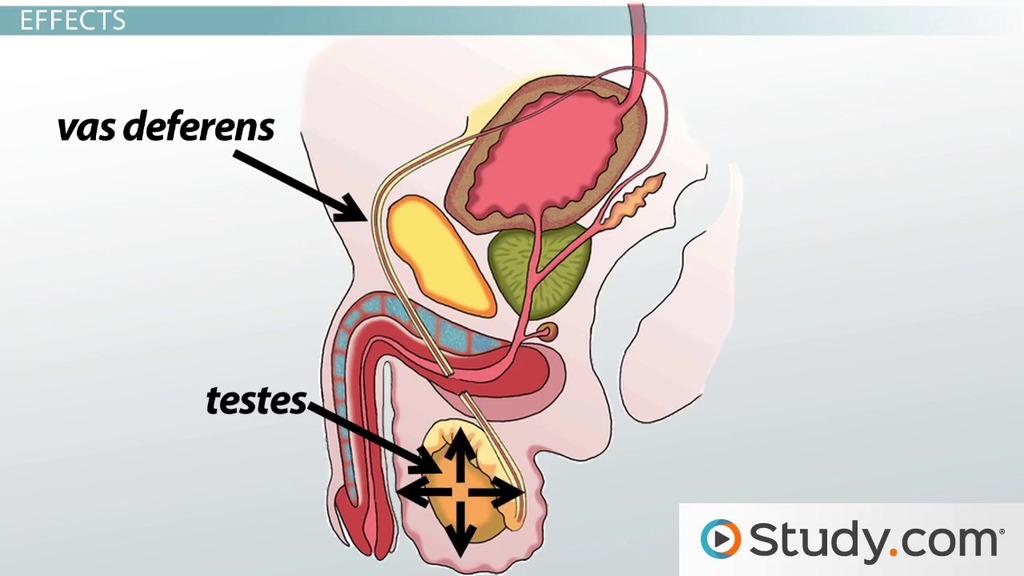Benefits of Vasectomy
Vasectomy is a safe and effective form of permanent contraception for men. This surgical procedure involves cutting or blocking the vas deferens, the tubes that carry sperm from the testicles to the urethra. In this article, we will explore the numerous benefits of vasectomy and why it is a popular choice for many individuals and couples.
Permanent Contraception
Vasectomy offers a permanent solution for individuals and couples who no longer wish to have children or do not want to rely on other forms of contraception. Unlike temporary methods such as condoms or birth control pills, vasectomy provides long-term peace of mind by eliminating the risk of unintended pregnancies.
Highly Effective
Vasectomy is one of the most reliable methods of contraception available. It has a success rate of over 99%, making it more effective than other forms of birth control. Once the procedure is done, the chances of impregnating a partner are extremely low, providing couples with a reliable and worry-free contraception method.
Simple and Safe Procedure
Vasectomy is a straightforward surgical procedure that can be performed in a doctor’s office or clinic. It is usually done under local anesthesia, ensuring minimal discomfort during the process. The procedure itself takes around 15-30 minutes, and most individuals can resume their normal activities within a few days of the surgery.
No Hormonal Side Effects
Unlike many other forms of contraception, vasectomy does not involve the use of hormones. This means that individuals who undergo vasectomy do not have to worry about the potential side effects associated with hormonal birth control methods, such as weight gain, mood swings, or decreased libido. Vasectomy offers a hormone-free option for individuals seeking contraception.
Cost-Effective
When compared to the long-term costs of other forms of contraception, vasectomy is a cost-effective option. While the initial cost of the procedure may vary depending on factors such as location and healthcare provider, it is a one-time expense that eliminates the need for ongoing expenses associated with other forms of birth control.
Minimal Downtime
After undergoing a vasectomy, most individuals experience minimal downtime. While it is important to rest and avoid strenuous activities for a few days, the recovery period is generally short. This means that individuals can quickly return to work and their regular routines without significant disruption.
Reversibility Options
Although vasectomy is considered a permanent form of contraception, it is worth noting that there are options for reversal. While vasectomy reversal is not always successful, advancements in medical technology have made it possible for some individuals to regain fertility after undergoing the procedure. It is important to discuss the potential for reversal with a healthcare professional before making a decision.

Vasectomy offers a range of benefits, including permanent contraception, high effectiveness, simplicity, and cost-effectiveness. It is a safe and reliable option for individuals and couples who have decided to complete their family or no longer wish to have children. If you are considering vasectomy as a contraceptive option, consult with a healthcare professional to discuss your specific needs and determine if it is the right choice for you.
Frequently Asked Questions
1. What is a vasectomy?
A vasectomy is a surgical procedure that involves cutting or blocking the vas deferens, the tubes that carry sperm from the testicles to the urethra.
2. How effective is a vasectomy in preventing pregnancy?
A vasectomy is over 99% effective in preventing pregnancy. However, it may take a few months or ejaculations to clear any remaining sperm from the reproductive system.
3. Is a vasectomy a permanent form of contraception?
Yes, a vasectomy is considered a permanent form of contraception. It is meant to be a permanent solution for men who no longer wish to have children.
4. Are there any health benefits to having a vasectomy?
While a vasectomy is primarily a contraceptive procedure, some studies suggest that it may have certain health benefits, such as reducing the risk of prostate cancer.
5. Does a vasectomy affect sexual function?
No, a vasectomy does not affect sexual function. It only prevents the release of sperm during ejaculation, but it does not impact the sensation of orgasm or the ability to have an erection.
6. Are there any risks or complications associated with a vasectomy?
Like any surgical procedure, a vasectomy carries some risks, such as infection, bleeding, or chronic pain. However, these complications are rare.
7. Can a vasectomy be reversed?
A vasectomy reversal is possible, but the success rates vary. It is a more complex and expensive procedure compared to a vasectomy, and there is no guarantee of restoring fertility.
8. How soon after a vasectomy can I resume sexual activity?
Most doctors recommend waiting at least a week after a vasectomy before resuming sexual activity to allow for proper healing.
9. Will I still need to use contraception after a vasectomy?
Yes, it is important to use contraception until a follow-up semen analysis confirms that there are no sperm present in the ejaculate. This usually takes a few months after the procedure.
10. Does insurance cover the cost of a vasectomy?
In many cases, health insurance plans cover the cost of a vasectomy. However, it is advisable to check with your insurance provider to confirm coverage.




